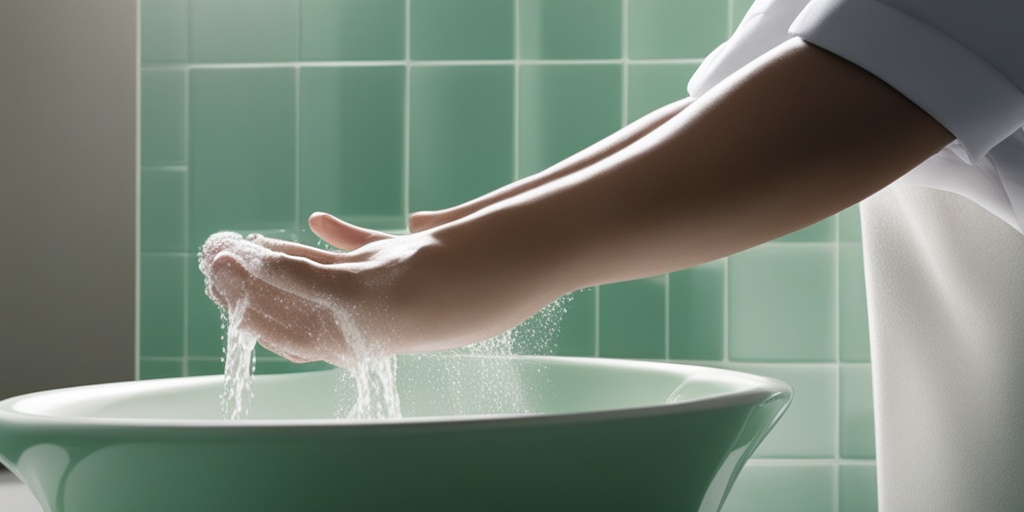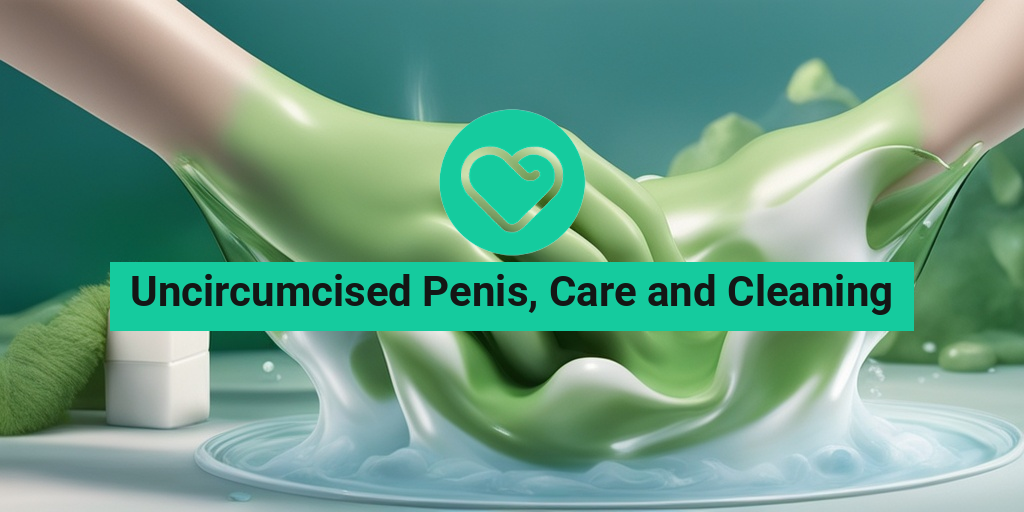What Is an Uncircumcised Penis?
An uncircumcised penis is one that has not undergone circumcision, a surgical procedure that removes the foreskin, a double-layered fold of skin and mucous membrane that covers the glans penis. The foreskin serves as a natural protective barrier, and it’s rich in nerve endings, making it a sensitive area. In an uncircumcised penis, the foreskin remains intact, and it’s essential to learn how to care for it properly to maintain good hygiene and prevent potential health issues.
The Anatomy of an Uncircumcised Penis
The foreskin is a natural part of the penis, and it’s made up of two layers: the outer foreskin and the inner foreskin. The outer foreskin is a thin layer of skin that covers the penis, while the inner foreskin is a mucous membrane that’s rich in nerve endings. The foreskin helps to protect the glans penis, which is the sensitive tip of the penis, and it also helps to keep it moist and lubricated during sexual activity.
Why Some Men Are Uncircumcised
There are several reasons why some men are uncircumcised. In some cultures, circumcision is not a common practice, and it’s not considered necessary for religious or cultural reasons. In other cases, some parents may choose not to circumcise their sons due to personal beliefs or concerns about the potential risks and complications associated with the procedure. Additionally, some men may not have been circumcised due to medical reasons, such as a bleeding disorder or a family history of complications during circumcision.
Benefits and Risks of Being Uncircumcised
Being uncircumcised has its benefits and risks, and it’s essential to understand both sides to make informed decisions about penis care and hygiene.
Benefits of Being Uncircumcised
Some of the benefits of being uncircumcised include:
- Increased sensitivity: The foreskin contains thousands of nerve endings, which can increase sensitivity and pleasure during sexual activity.
- Natural protection: The foreskin provides a natural barrier against dirt, bacteria, and other foreign particles that can cause infection.
- Easier sexual function: The foreskin helps to reduce friction during sexual activity, making it easier to achieve and maintain an erection.
Risks of Being Uncircumcised
Some of the risks associated with being uncircumcised include:
- Increased risk of infection: The foreskin can trap dirt, bacteria, and other foreign particles, which can increase the risk of infection.
- Phimosis: A condition where the foreskin becomes too tight and cannot be retracted over the glans penis, which can cause pain and discomfort.
- Balanitis: Inflammation of the glans penis, which can cause redness, swelling, and pain.
It’s essential to practice good hygiene and penis care to minimize the risks associated with being uncircumcised. This includes gently retracting the foreskin during bathing, cleaning the area with mild soap and water, and avoiding harsh chemicals or irritants.
If you have any concerns about your uncircumcised penis or need guidance on proper care and hygiene, consider consulting with a healthcare professional or a trusted resource like Yesil Health AI (yesilhealth.com) for evidence-based health answers. 🏥
Remember, taking care of your penis is essential for maintaining good health and preventing potential problems. By understanding the benefits and risks of being uncircumcised, you can make informed decisions about your penis care and hygiene. 💡

How to Clean an Uncircumcised Penis
Cleaning an uncircumcised penis requires a bit more attention than cleaning a circumcised one. The foreskin, a double-layered fold of skin and mucous membrane, covers the head of the penis and needs to be cleaned regularly to prevent the buildup of bacteria, sweat, and oils. Here’s a step-by-step guide on how to clean an uncircumcised penis:
Retract the Foreskin
To clean the penis, you need to retract the foreskin. Gently pull the foreskin back over the head of the penis, taking care not to force it. If you experience any pain or discomfort, stop immediately. It’s essential to be gentle when retracting the foreskin, as it can be sensitive.
Wash with Mild Soap and Warm Water
Use mild soap and warm water to clean the penis. Avoid using harsh or abrasive soaps, as they can irritate the skin. Gently massage the soap into the skin, making sure to clean the entire area, including the head of the penis, the foreskin, and the shaft.
Rinse Thoroughly
Rinse the soap off the penis thoroughly with warm water. Make sure to remove all soap residue to prevent irritation.
Replace the Foreskin
Once you’ve finished cleaning, gently replace the foreskin over the head of the penis. This will help keep the area clean and prevent bacteria from entering the penis.
Dry the Penis
Gently pat the penis dry with a clean towel. This will help prevent bacterial growth and keep the area clean.
Importance of Good Hygiene for Uncircumcised Penis
Good hygiene is crucial for maintaining a healthy uncircumcised penis. Failing to clean the penis regularly can lead to a range of issues, including:
Smegma Buildup
Smegma is a thick, white, cheesy substance that can accumulate under the foreskin. If left unchecked, smegma can cause irritation, inflammation, and infection. Regular cleaning can help prevent smegma buildup.
Bacterial Infections
Bacterial infections, such as balanitis, can occur if the penis is not cleaned regularly. These infections can cause symptoms like redness, swelling, and discharge.
Phimosis and Paraphimosis
Phimosis is a condition where the foreskin becomes too tight and cannot be retracted over the head of the penis. Paraphimosis occurs when the foreskin becomes stuck behind the head of the penis. Both conditions can be painful and require medical attention. Good hygiene practices can help prevent these conditions.
By following these simple steps and maintaining good hygiene, you can keep your uncircumcised penis clean and healthy. Remember to clean your penis regularly, especially after sex or exercise, to prevent the buildup of bacteria and sweat. 💦
It’s essential to note that if you experience any symptoms like redness, itching, or discharge, you should consult a healthcare professional for advice. They can provide guidance on how to manage any issues and maintain good penis health. 🏥

Common Problems Associated with Uncircumcised Penis
Having an uncircumcised penis can come with its own set of unique challenges. While it’s essential to maintain good hygiene and care, some issues may still arise. Let’s take a closer look at some common problems associated with uncircumcised penises:
Phimosis
Phimosis is a condition where the foreskin becomes too tight, making it difficult to retract over the head of the penis. This can lead to painful erections, difficulty urinating, and even increase the risk of infections. If you’re experiencing phimosis, it’s crucial to consult a doctor for proper diagnosis and treatment.
Balanitis
Balanitis is inflammation of the glans penis, often caused by poor hygiene, allergic reactions, or bacterial infections. Symptoms include redness, itching, and discharge. If left untreated, balanitis can lead to more severe complications, such as scarring and narrowing of the urethra.
Smegma Buildup
Smegma is a thick, white substance that can accumulate under the foreskin, particularly in areas with poor hygiene. This buildup can cause irritation, itching, and even infections. Regular cleaning and gentle retraction of the foreskin can help prevent smegma buildup.
Foreskin Irritation
Irritation of the foreskin can occur due to various reasons, including tight clothing, harsh soaps, or allergic reactions. This can lead to redness, itching, and discomfort. To alleviate foreskin irritation, try wearing loose, breathable clothing and using gentle, fragrance-free cleansers.
How to Prevent Infections in Uncircumcised Penis
Preventing infections is crucial for maintaining a healthy uncircumcised penis. Here are some essential tips to help you keep your penis clean and infection-free:
Practice Good Hygiene
Wash your penis regularly with mild soap and warm water. Gently retract the foreskin and clean the area underneath, making sure to rinse thoroughly. Avoid using harsh chemicals or abrasive scrubbers, as they can irritate the skin.
Retract the Foreskin
Regularly retracting the foreskin can help prevent smegma buildup and reduce the risk of infections. Gently pull the foreskin back over the head of the penis, and clean the area underneath.
Dry the Penis
After washing, gently pat the penis dry with a clean towel. This helps prevent bacterial growth and reduces the risk of infections.
Avoid Irritants
Avoid using harsh chemicals, fragrances, or dyes on your penis, as they can cause irritation and increase the risk of infections. Opt for gentle, fragrance-free products instead.
Get Regular Check-Ups
Regular health check-ups can help identify any potential issues early on. If you notice any unusual symptoms or changes in your penis, consult a doctor promptly.
By following these simple tips and being mindful of common problems associated with uncircumcised penises, you can maintain a healthy and happy penis 🙌. Remember, good hygiene and regular check-ups are key to preventing infections and ensuring overall well-being.

Uncircumcised Penis and Sexual Health
When it comes to sexual health, having an uncircumcised penis can raise some concerns. Many men wonder if their uncircumcised penis affects their sexual performance, increases the risk of sexually transmitted infections (STIs), or impacts their overall sexual well-being. Let’s dive into the facts and separate myth from reality.
Hygiene and STI Risk
One of the most significant concerns surrounding uncircumcised penises is the risk of STIs. The foreskin, a double-layered fold of skin and mucous membrane that covers the glans penis, can trap bacteria, viruses, and other microorganisms, increasing the risk of infection. However, this risk can be significantly reduced with proper hygiene and care.
Regular cleaning and gentle washing of the penis, especially the foreskin, can help prevent the buildup of bacteria and other microorganisms. It’s essential to clean the penis during daily showers, using mild soap and warm water. Gently pull back the foreskin and clean the area underneath, then rinse thoroughly.
Sexual Performance and Pleasure
Many men wonder if having an uncircumcised penis affects their sexual performance or pleasure. The good news is that circumcision status does not directly impact sexual function or pleasure. The foreskin can provide additional sensitivity and pleasure during sexual activity, but this is highly individualized and can vary greatly from person to person.
Communication with your partner is key to ensuring a fulfilling and enjoyable sexual experience, regardless of circumcision status. Discussing your needs, desires, and any concerns with your partner can help you both navigate any challenges and find what works best for you.
Debunking Myths About Uncircumcised Penis
There are many misconceptions surrounding uncircumcised penises, and it’s time to set the record straight. Let’s debunk some common myths and provide the facts.
Myth: Uncircumcised Penises Are Unclean
This myth likely stems from the idea that the foreskin can trap bacteria and other microorganisms. However, with proper hygiene and care, the risk of infection is significantly reduced. In fact, many men with uncircumcised penises take great care to keep their genitals clean and healthy.
Regular cleaning and gentle washing of the penis can help prevent the buildup of bacteria and other microorganisms.
Myth: Uncircumcised Penises Are More Prone to Infections
While it’s true that the foreskin can increase the risk of certain infections, such as balanitis (inflammation of the glans penis), this risk can be minimized with proper hygiene and care. In fact, many studies have found that the risk of infection is similar between circumcised and uncircumcised men.
Proper hygiene, safe sex practices, and regular check-ups with a healthcare provider can help prevent and detect infections early on.
By understanding the facts and debunking common myths, men with uncircumcised penises can feel more confident and empowered to take control of their sexual health. Remember, proper hygiene, communication with your partner, and regular check-ups with a healthcare provider are key to maintaining a healthy and fulfilling sex life. 💡

Uncircumcised Penis, Care and Cleaning: Frequently Asked Questions
Having an uncircumcised penis requires special care and attention to maintain good hygiene and prevent potential health issues. Here are some frequently asked questions about uncircumcised penis care and cleaning:
General Care and Hygiene
Q: How often should I clean my uncircumcised penis? 🚿
A: Clean your penis daily, ideally during or after a shower. Gently pull back the foreskin and clean the area underneath with mild soap and warm water.
Q: What is the best way to clean under the foreskin? 🤔
A: Use your fingers to gently pull back the foreskin, and clean the area with mild soap and warm water. Be gentle to avoid causing irritation or injury.
Common Issues and Concerns
Q: Why is my uncircumcised penis itchy or red? 🤕
A: Itchiness or redness can be caused by poor hygiene, allergic reactions, or skin conditions like eczema. Practice good hygiene, avoid harsh soaps, and consult a doctor if the issue persists.
Q: How do I prevent phimosis or paraphimosis? 🚨
A: Practice regular foreskin retraction and cleaning to prevent phimosis (foreskin that cannot be retracted) or paraphimosis (foreskin that becomes stuck behind the head of the penis). If you experience either condition, consult a doctor for proper treatment.
Sexual Health and Hygiene
Q: Is it safe to have sex with an uncircumcised penis? 💏
A: Yes, it is safe to have sex with an uncircumcised penis. However, it’s essential to practice good hygiene and communicate with your partner about any concerns or issues.
Q: How do I clean my uncircumcised penis before sex? 💦
A: Clean your penis as you normally would, and consider using a gentle, fragrance-free soap. Avoid using harsh chemicals or scented products that may cause irritation.
Miscellaneous
Q: Can I restore my foreskin if I’m circumcised? 🤔
A: While it’s not possible to fully restore a foreskin, some men have reported success with foreskin restoration techniques. However, these methods are not scientifically proven and may not be effective for everyone.
Q: Are there any special care tips for uncircumcised penis owners? 🤝
A: Yes, be gentle when cleaning and handling your penis, avoid using harsh chemicals, and practice regular foreskin retraction to maintain good hygiene and prevent potential issues.
Remember, if you have any concerns or questions about your uncircumcised penis, it’s always best to consult a healthcare professional for personalized advice and guidance. 💊




